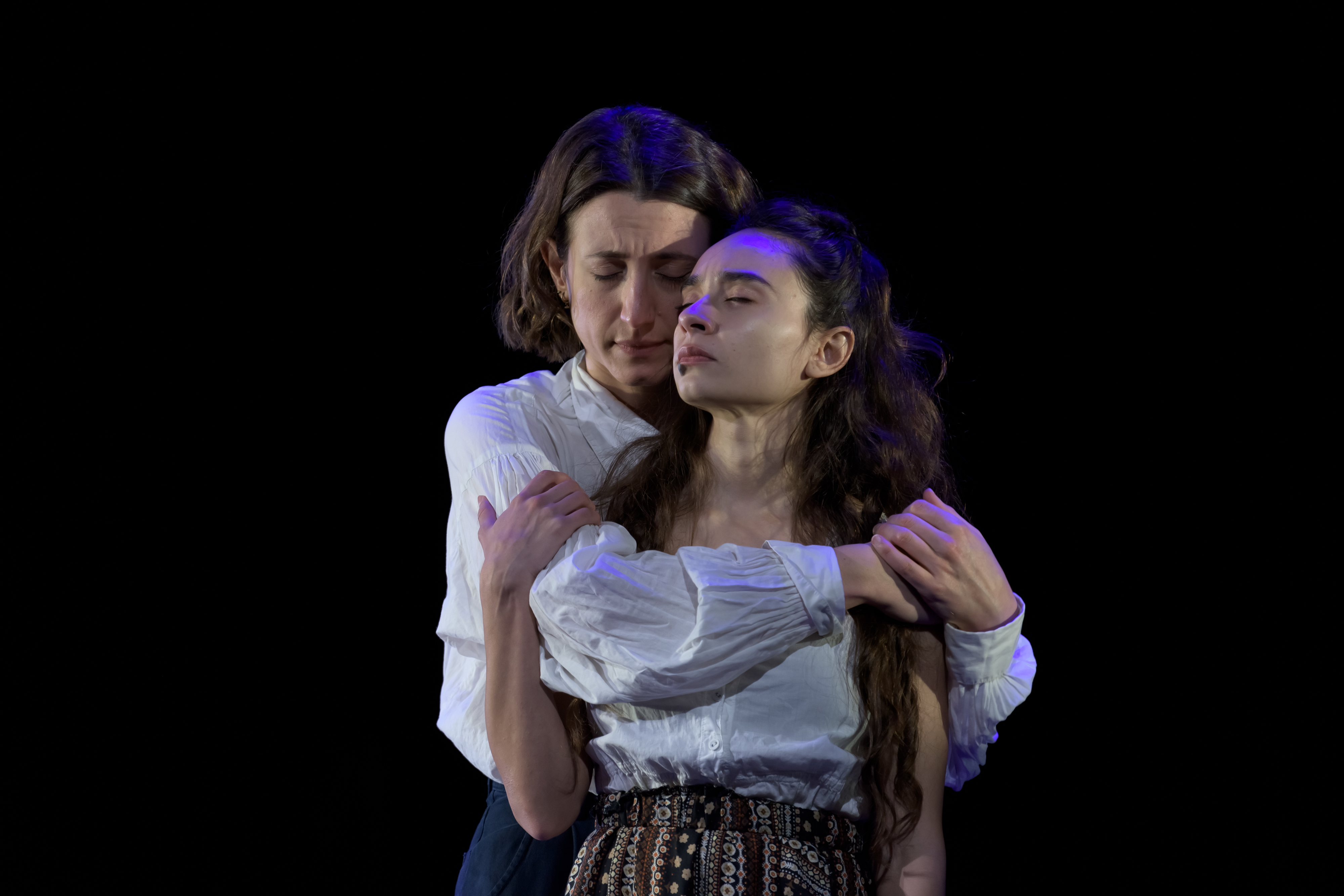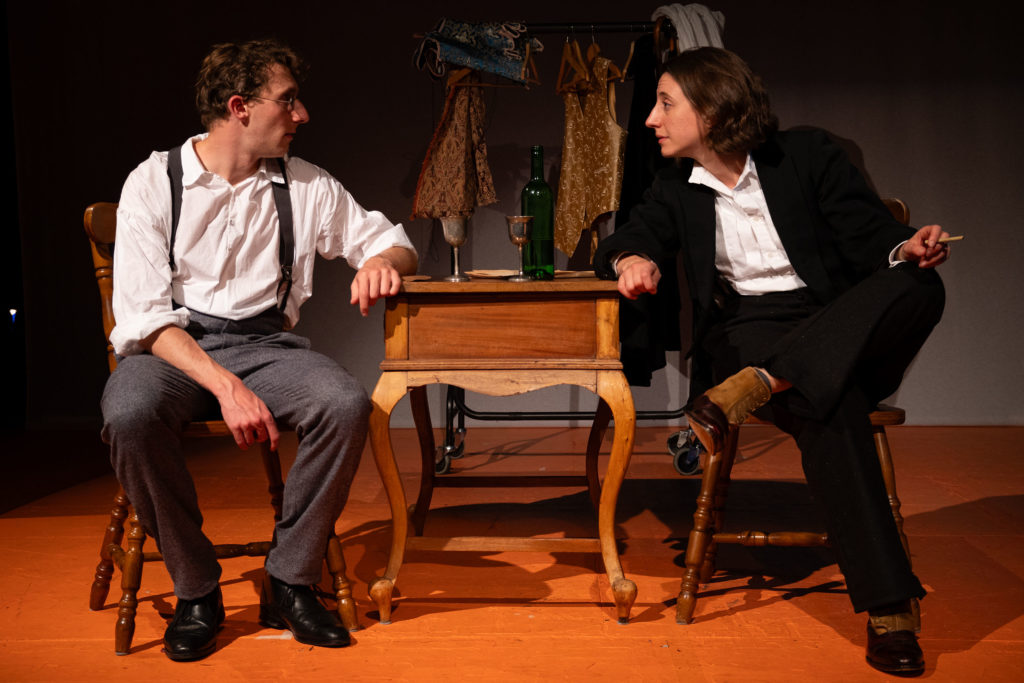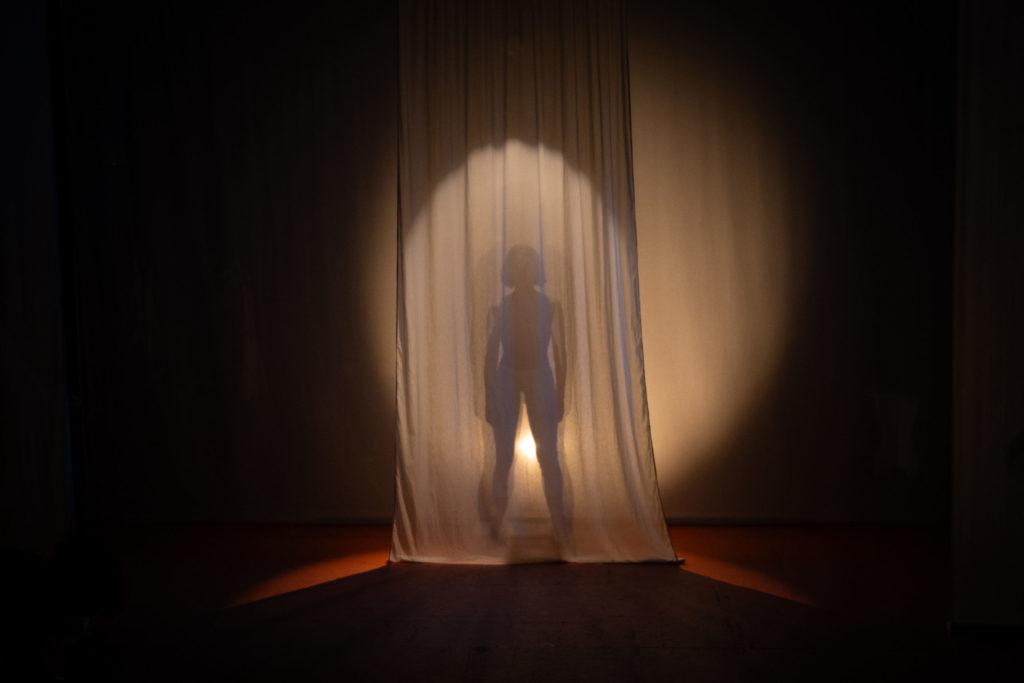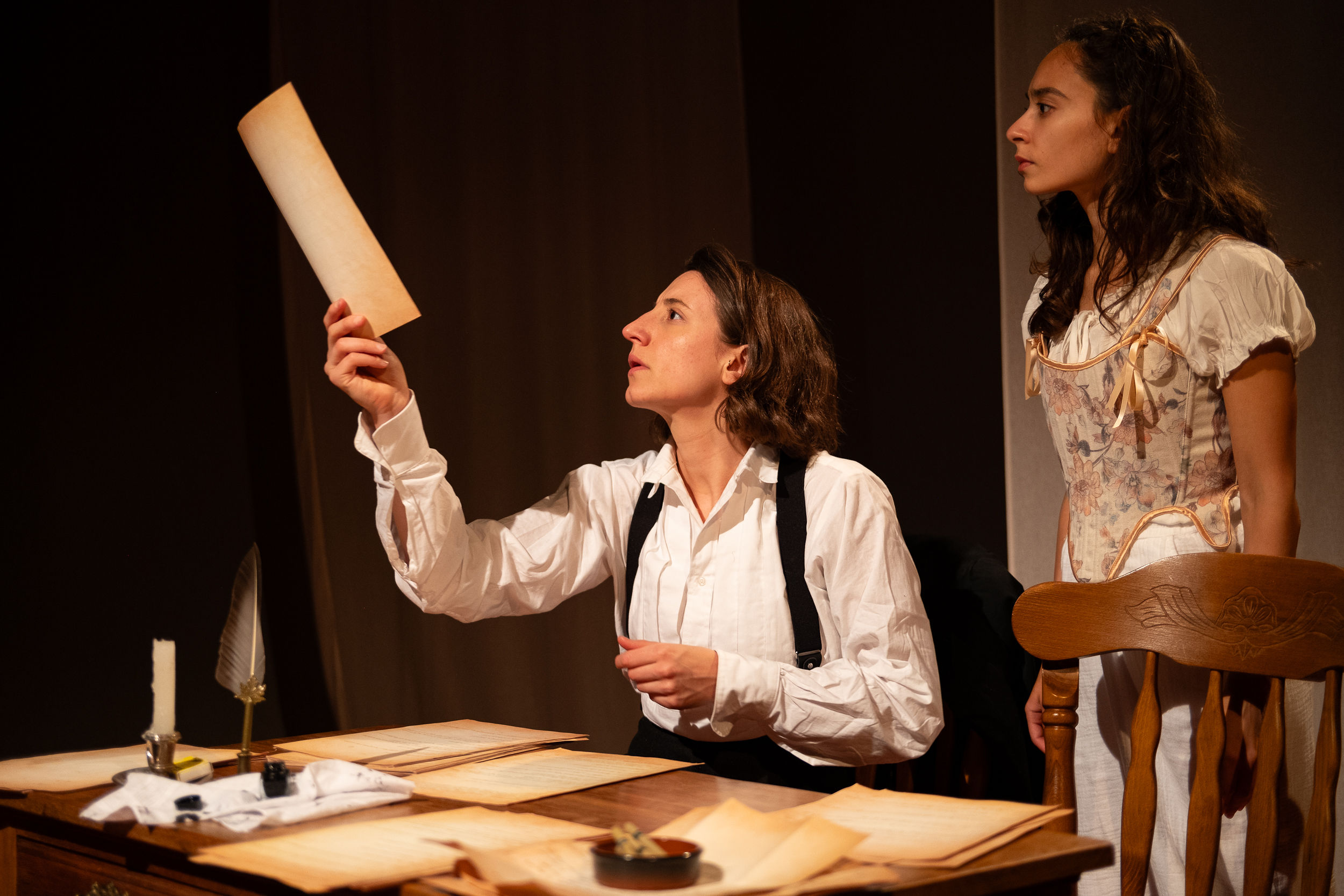GEORGE – Omnibus Theatre, London
Léa des Garets imagines what might have been as they delve into the life of George Sand and the creation of the remarkable 1839 work Gabriel.

Lead image by Marie Campain.
GEORGE
We sometimes on the Salterton Arts Review debate whether theatre is the right medium for a particular story. Can an audience member understand a play without too much explanation? Or would some other format have been better? Rest assured, dear readers: today I have an example for you of a story suited perfectly to the stage.
We do have to go back in time just a little, though. Or more than a little: to 1839. George Sand – as notorious then and now for her lifestyle as for her writing – has hit a little dry spell, just when she’s in need of funds. In collaboration with her lover, Marie Dorval, however, an idea begins to form. And it’s an idea for a play, Sand’s first. The story is as far-fetched as you could hope from something produced in the Romantic style. Gabriel, an Italian Prince, discovers he was born a woman, his upbringing part of a plot to secure an inheritance. Whether and how (s)he comes to terms with this shattering of identity, the refusal of society to let her/him live as s(he) chooses, provides the tension in the piece.
Gabriel was not performed during Sand’s lifetime, or for well over a century afterwards. And in fact the finished product was arguably not theatre at all, but a roman dialogué, a ‘dialogue novel’. It nonetheless provides rich inspiration for Léa des Garets in their new play GEORGE, on at Omnibus Theatre, Clapham, as part of 96 Festival.

Through a Period Lens, Not a Modern One
The reason GEORGE is so well suited to the theatrical medium is that is takes a paltry historic record and liberally and imaginatively embellishes it. Gabriel, of course, survives as a document. We have some correspondence between Dorval and Sand (nothing that technically proves a relationship in fact, but denying it seems almost like willful blindness). But there are gaps in the archive. And we don’t have a lot of other information about this period in the author’s life. And so des Garets takes us on a journey to discover what might have been, in the writing of a story which seems so clearly to be more autobiographical than it would have been sensible/safe for Sand to admit.
A small note of caution, here. We are viewing this play, and I am writing, from a perspective in which there is language to describe gender and sexuality in a way that was not available in 1839. The generally accepted way to manage this respectfully when it comes to historic figures is to avoid applying modern terms retrospectively, at least where we don’t know explicitly how they thought of or described themselves. There’s a bit more freedom in a dramatic interpretation, but des Garets nonetheless leaves space for ambiguity rather than pinning down Sand, or Gabriel, with contemporary or even historic terms.
Part of the point of this play and the play-within-a-play is of course to explore what it feels like for one’s life and person not to fit neatly into understood categories. In this sense GEORGE uses clever writing to explore issues we can understand today through a historic lens.

A Triumphant Team Effort
And this really is very good writing. GEORGE is witty, heartfelt and relevant. It paints in a few artful brushstrokes a picture of French literary and artistic circles in 1839. We meet Eugène Delacroix among others, while Frédéric Chopin tinkles away on the piano in the other room, boring everyone to tears. I’ve never felt quite so sorry for a completely absent character. Under Rute Costa’s direction GEORGE is well-paced with good flow, and enough room for us to feel and empathise with the characters’ struggles.
Des Garets takes the starring role as Sand. This is sometimes a dangerous conflict of interest for a playwright, but they bring the character to life very skillfully. They have also written meaty parts for the other two actors in this three-hander. Iniki Mariano as Marie Dorval shows spirit and nuance in portraying another type of non-conformist womanhood. Meanwhile Conor Dumbrell, who is credited as ‘All the Men’, has great fun. His arch, campy editor and director are audience favourites, while he gets to show a quieter part of his range as characters from Gabriel and more.
I also found the staging exceptionally good. The combination of set and costume design (Delyth Evans) and lighting (Marie Colahan) is excellent. I loved the attention to historic detail in the props and costumes against the simplicity of the set consisting of various movable lengths of fabric. When back-lit by Colahan, it provides ambiguous and playful opportunities to explore various characters. With complementary sound design by Jamie Lu it works really well to create an immersive and believable world.
And so, as you can probably tell, I heartily recommend GEORGE. It’s one of the best things I’ve seen on stage for a while, both in terms of the writing and the production. And is both a memorable story and an relevant one.
Salterton Arts Review’s rating: 4.5/5
GEORGE on until 14 July 2024
Trending
If you see this after your page is loaded completely, leafletJS files are missing.

